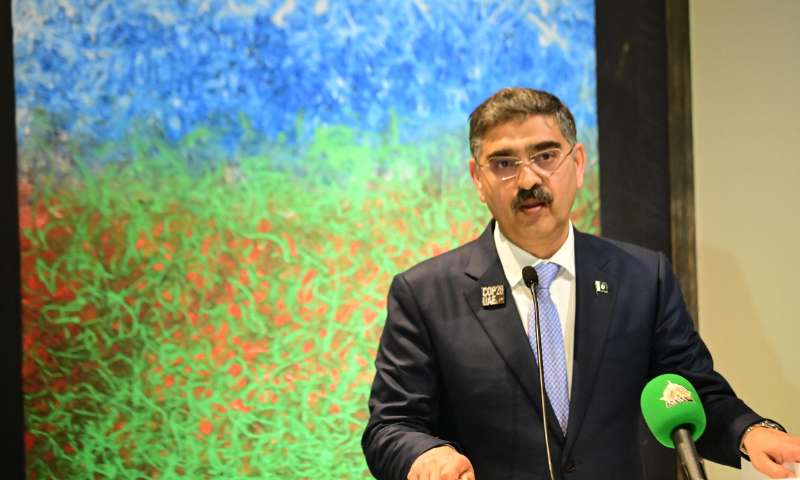DUBAI: Caretaker Prime Minister Anwaar-ul-Haq Kakar said on Sunday that adapting Pakistan to climate change was vital to adapt the Indus Basin to the climate impacts as the majority of the population was linked with the river.
He said Pakistan’s climate challenge was basically a water challenge which needed immediate actions to be addressed.
Addressing an event on the “Living Indus Initiative” organized at the Pakistan Pavilion at the venue of the United Nations’ 28th Conference of Parties (COP 28), PM Kakar said that Pakistan was the eighth most vulnerable nation in the world to the impacts of climate change.

He said Living Indus was an umbrella initiative aimed at restoring the Indus’ ecological health within the boundaries of Pakistan, which was the most vulnerable country to climate change.
The prime minister said that the umbrella initiative emerged from extensive consultation with stakeholders, resulting in a set of twenty-five living interventions that emphasize nature-based solutions and ecosystem-based adaptation approaches.
He said that more important was that the Living Indus initiative sought to mobilize a moment that prepared and restored a healthy river for today and tomorrow.
We are here to collaborate and give voice to our rivers. The Indus needs a voice, and we are here to give that voice. The Indus River feeds us, and if we do not take care of it, it will not be there to take care of us, he said.
PM Kakar said that we need a minimum indicative investment between $11 to 17 billion dollars over the next fifteen years to mobilize the public sector, private sector, communities, and citizens.
Significance of Recharge Pakistan Project
He said Islamabad started “Recharge Pakistan,” which was the first concrete step towards the Living Indus. This flagship project with a global climate finance of nearly 78 million dollars is central to our efforts in reducing future flooding and drought impacts.























